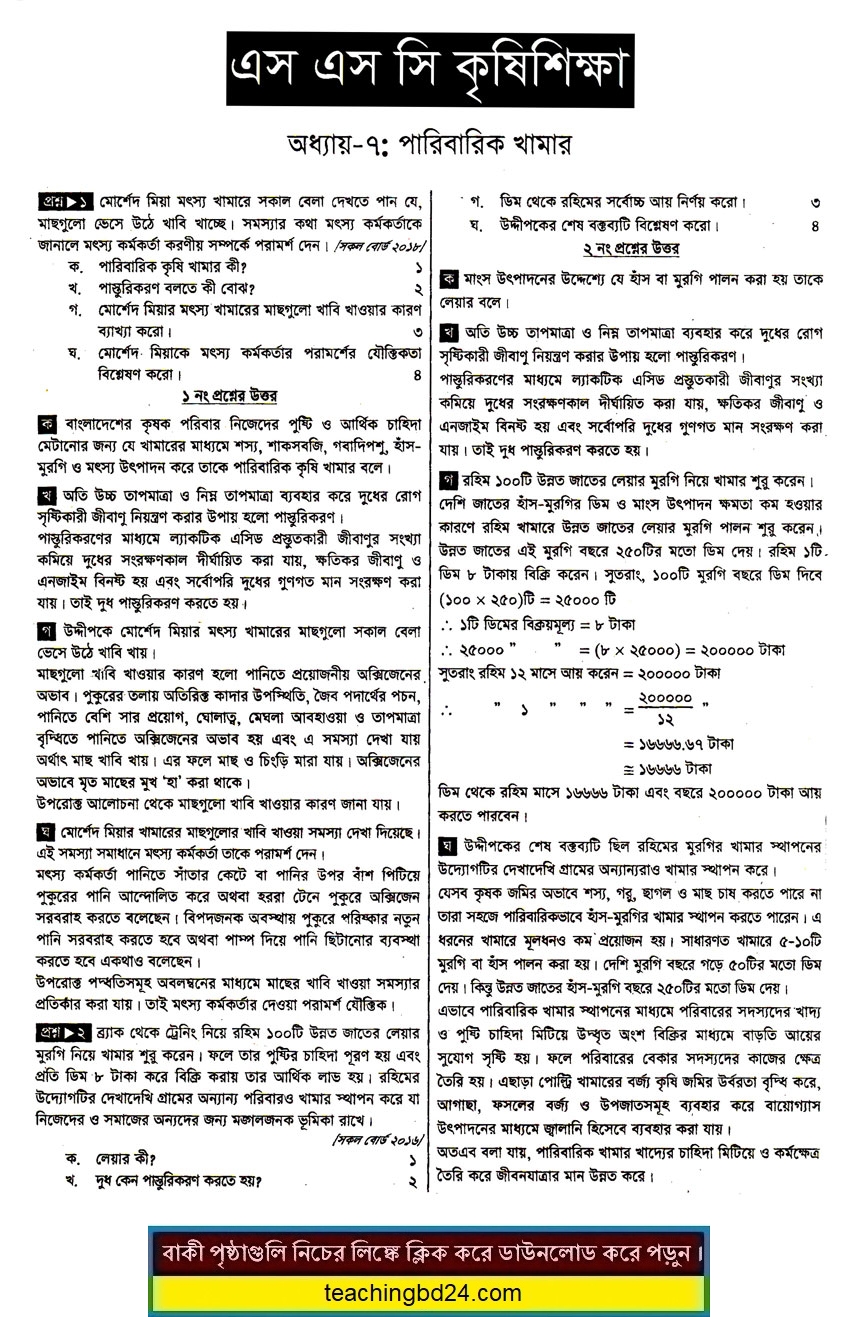Chapter 7. Family Farming. Bangladesh is an agriculture-based country. Agriculture is the key factor to run its economy. Farmers of this country maintain agricultural farms since the ancient period. Farmers produce a crop, livestock, poultry, and fish in their farms. The concept and importance of household agricultural farming have been discussed in this part.
Chapter 7. Family Farming

Farmers in Bangladesh produce the crop, vegetables, livestock, poultry, and fish by family agricultural farming. The farm may be commercial or household according to its size. The commercial agricultural farm is further categorized into large, medium and small. Big capital and manpower are required for commercial farms. But small capital is required for household farms. Household agricultural farms sometimes can earn some extra income after the meet up the family needs.
Family farming is a means of organizing agricultural, forestry, fisheries, pastoral and aquaculture production which is managed and operated by a family and predominantly reliant on family labor, including both women’s and men’s.
The United Nations has declared 2014 the International Year of Family Farming. Rightly so, says Eve Crowley, Principal Advisor for Gender, Equity and Rural Employment at the FAO, for family farmers play a key role in numerous areas of rural life. But this does not mean that they have a positive impact per se; support addressing them needs to be considered very thoroughly. Family Farming Plays Key Role in Sustainable Development, Meeting Zero Hunger Challenge, Secretary-General Says in Message to Global Forum
Family farming is one of the most predominant forms of agriculture worldwide, both in developing and in developed countries. The sector comprises a wide spectrum of farm sizes and types, ranging from very large landholdings in high-income economies that are easily cultivated by one or two family members with the use of labor-saving machinery and hired labor to the smallholdings of a few hectares or less in low-income economies.
These small family farms, run by small producers are by far, the most numerous: globally, there are approximately 525 million small family farms, 290 million of which are in China and India alone (IFPRI, 2012). Thus, although family farmers and small producers are not identical groups, they share much common ground and hence face a series of similar issues.
Family farming includes all family-based agricultural activities, and it is linked to several areas of rural development. Family farming is a means of organizing agricultural, forestry, fisheries, pastoral and aquaculture production which is managed and operated by a family and predominantly reliant on family labor, including both women’s and men’s.
Both in developing and developed countries, family farming is the predominant form of agriculture in the food production sector.
At national level, there are a number of factors that are key for a successful development of family farming, such as: agro-ecological conditions and territorial characteristics; policy environment; access to markets; access to land and natural resources; access to technology and extension services; access to finance; demographic, economic and socio-cultural conditions; availability of specialized education among others.
Family farming has an important socio-economic, environmental and cultural role.
teachingbd24.com is such a website where you would get all kinds of necessary information regarding educational notes, suggestions and questions’ patterns of school, college, and madrasahs. Particularly you will get here special notes of physics that will be immensely useful to both students and teachers. The builder of the website is Mr. Md. Shah Jamal Who has been serving for 30 years as an Asst. Professor of BAF Shaheen College. He expects that this website will meet up all the needs of Bengali version learners /students. He has requested concerned both students and teachers to spread this website home and abroad.
Discover more from Teaching BD
Subscribe to get the latest posts sent to your email.



